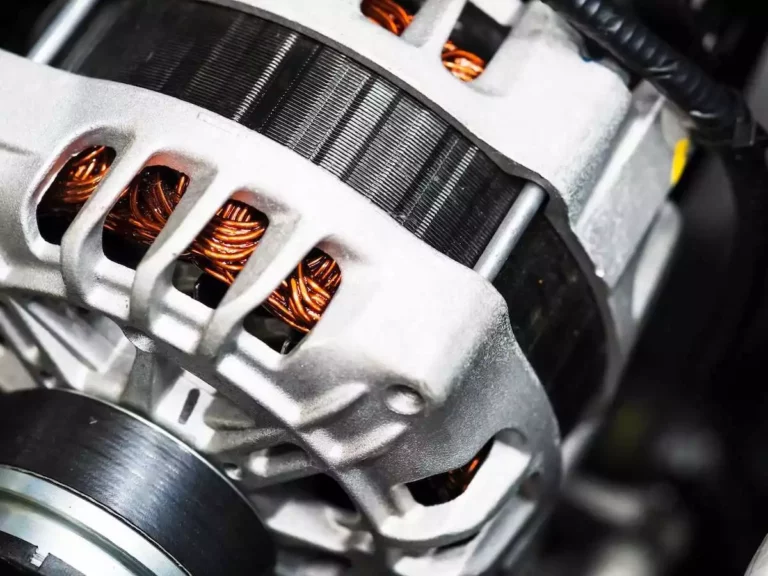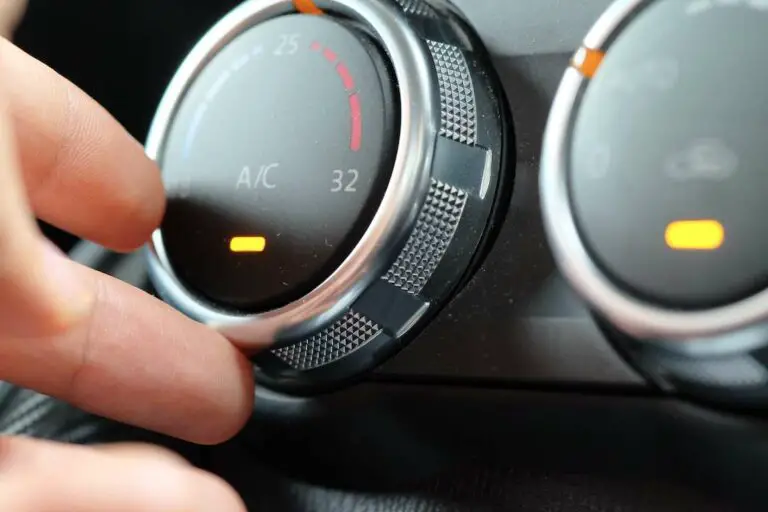Blown Alternator Fuse? [Symptoms, Cause, Fix, and More!]
Driving your car through sunsets or just a few minutes it takes to get to work can eventually cause some odd problems to occur. One of the most common issues people find themselves facing and not knowing the cause is when the alternator fuse blows, causing problems that may cause long-term damage.
The main symptom of a blown alternator fuse will be that the battery no longer charges, causing starting and idling problems. Shorts cause blown alternator fuses in power or by surges, and you will need to replace the fuse and fix the underlying issue that caused the fuse to be blown.
Many things can cause the alternator fuse to be blown with even more symptoms that will tell you when this has happened. Knowing why a fuse has blown and how to tell with some of the earlier symptoms will ensure you can enjoy your car always on the road.
What Are The Symptoms That The Alternator Fuse Has Blown?
The symptoms that your alternator fuse has blown can vary, with some larger cars showing symptoms much faster than others. In contrast, some of the smaller older vehicles still on the roads can go without alternators for several days without ever showing any symptoms.
Knowing the symptoms of the alternator fuse being blown will be different in each car, with many more modern cars making it almost impossible not to know that it has blown. To help you know when the fuse has blown before, you find yourself left in the middle of nowhere.
1. Dead Battery
The most common symptom people notice when the alternator fuse has blown is when the vehicle battery is dead the next time they want to start it. As the alternator is not connected properly to the battery, it can no longer recharge it as you drive around.
However, it should be noted that the battery would die quite quickly when blown by the alternator fuse. Usually, the battery will die while you are driving, causing the entire car’s electrical system to stop working, with you coming to a halt on the side of the road.
2. Lighting Issues
A very good sign that the alternator fuse has blown is that the light of your car will start misbehaving, usually flickering or just going out altogether. The lights will often dim as you drive, which is why people don’t notice immediately when the fuse has blown.
Because the lights are slowly dimming, people get used to seeing less and less until it is usually too late to keep the car going by just replacing the blown alternator fuse. Instead, you would need to replace the fuse, fix the alternator, and replace the battery as it has been too damaged to be trusted.
3. Warning Lights
Most modern cars will tell you when the alternator fuse has blown through warning lights. Depending on your car’s model and year, the lights may be a combination of lights going off or just a battery warning light flashing when you turn the key.
It should be noted that cars with warning lights for the alternator fuses will usually not allow the car to start up when there is a problem. This safety feature means that you won’t be damaging your battery by pulling too much power from it or draining it completely.
4. Car Unable To Start
Few people know about cars, even the most modern cars, that the battery does not keep it going. Instead, the spark to keep the internal combustion process going is provided by the power from the alternator, which requires the alternator fuse to be perfectly fine and working.
While the battery provides the initial power boost to get the engine started, the engine will almost immediately die down when the alternator fuse is blown. If you are starting the car and the battery dies within a few seconds or minutes, you should check on the alternator fuse.
5. Engine Having Trouble To Start Or Idle
Some older cars or diesel engines can run without an alternator, as the battery can provide the energy needed to keep the engine going for a while. However, there will be frequent misfires, and the longer the car goes, the less reliably it will be, as the battery slowly gets drained.
When the car struggles to idle at stop signs or just after starting, it can indicate that the alternator fuse has blown or even other fuses in the car. Shutting the car down and turning off all the lights is the first thing you should do before checking on the fuses to find the problem.
How Do Cars From Different Eras Behave With Blow Alternator Fuses?
Something that will always be hard to remember, even for mechanics who work on cars every day, is that older cars react differently when the alternator fuse has blown. Modern cars will often shut down and start giving large warning signs when something goes wrong.
Older, less technologically advanced cars may still start fine and even allow you to drive around with the blown alternator fuse. We always recommend that you consider this, as you may find yourself with the problem of a car that started just fine at home but has died completely when you got on the highway.
Cars From Before The 2000s

Some of the most luxurious cars from before the 2000s will have automatic systems that detect when the alternator fuse has gone. However, most cars will not, and the only way you will know the fuse has blown is when the car starts to die or refuses to start.
Most of the time, you can only tell that the alternator fuse has been blown or that the alternator itself has been damaged when the car no longer works. Fortunately, this lack of electrical equipment also means that the battery is less likely to be drained and that whatever caused the fuse to be blown won’t cause more damage.
Cars From after 2001
Most modern cars, whether sports cars or just the most inexpensive thing you could find, will have safety systems. These systems prevent the car from starting when a fuse has been blown, allowing you to check what is wrong before it becomes a bigger problem.
This may not happen only when the alternator fuse is blown while the vehicle is actually moving around. Fortunately, the car will warn you on the dashboard and ask you to pull over and shut it down, prompting you to call someone or the nearest dealership.
What Can Cause An Alternator Fuse To Blow?
The list of things that can cause the alternator fuse to blow is more than most other systems in your car. Because the alternator is the main component that produces power, many things can cause the fuse to blow, keeping the alternator and the rest of the electrical systems safe.
We have listed the most common reasons that will cause the alternator fuse to blow; keeping each one in mind will ensure that your fuses stay safe. We always recommend you consider what will happen to your car when driving through specific areas or environments.
1. Power Surges
The most common reason that the alternator fuse has blown is because of a power surge that has occurred. This can be caused by a broken alternator or a short circuit through the electrical system caused by various things that have gone wrong.
Rarely, over-revving the engine can cause a short or even surge caused by plugging in a new USB device. All of these must be considered as causes for your alternator fuse to be blown, with many people specifically preventing problems by never plugging in unknown devices.
2. Water Damage
Your car can drive through several feet of water if the intake has been lifted to be higher position and the electricals have been sealed. Most cars have some water resistance, causing damage to the internal electrical parts of the car, but a normal car’s alternator will not be water sealed.
This means that you can drive through rain and puddles without a problem, but when submerging the engine area in the water, you will cause damage to the alternator. We always recommend that you don’t drive through puddles that are deeper than half of your front tires, preventing water from damaging the electric systems.
3. Electrical Cable Problems

Any car that has been driven daily for more than ten years will start to show its age in some very odd and unique ways. One of the main issues that will start happening is the protective shielding around the cable will start to be exposed, causing short circuits and sparks that will blow several fuses.
The alternator is the one component you would never want to have any shorts on, and it is also one of the main pieces of electrical that will start to short. Because of the high voltages and amps it sends through the car, the cables connected to it start to age much faster.
4. Bad Alternator
Alternators do not last forever and eventually become damaged internally and from the outside. When this happens, random surges or the alternator may pull power from the wrong end, causing the alternator fuse to be blown, usually causing some wire damage.
Your alternator should nearly last as long as you have the car, with many people only having to replace the alternator when something has gone wrong. However, it should be noted that it may be worth checking on the alternator every few years to ensure that it is providing enough power.



![How Often Does Car AC Need to be Recharged? [Easy Guide!]](https://vehicleuniversity.com/wp-content/uploads/2023/01/girl-driver-has-problem-with-non-working-condition-2022-08-01-04-57-51-utc-768x576.webp)
![Can You Open a Car Door Underwater? [Here’s What to Know!]](https://vehicleuniversity.com/wp-content/uploads/2023/01/Depositphotos_52375185_XL-768x512.jpeg)



